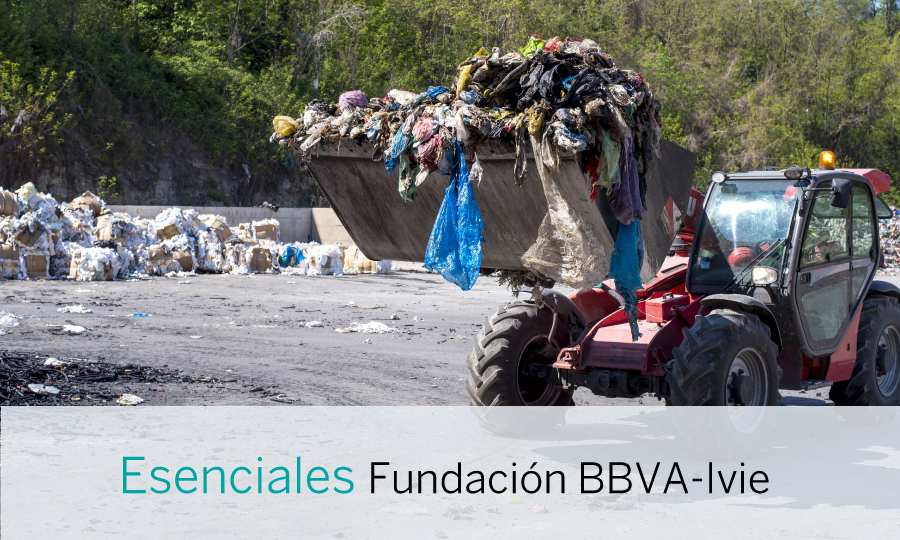Esta web utiliza cookies para que podamos ofrecerte la mejor experiencia de usuario posible. La información de las cookies se almacena en tu navegador y realiza funciones tales como reconocerte cuando vuelves a nuestra web o ayudar a nuestro equipo a comprender qué secciones de la web encuentras más interesantes y útiles.

Spain reduces urban waste per capita by 32.5%, but its recycling rate is still 12 points lower than the European average and its circular use of materials is getting worse
The development of the circular economy has become crucial in addressing today’s environmental issues, as well as in reducing external dependence on raw materials. As a result, numerous measures to promote and stimulate its development have emerged at national and European levels. In 2000, Spain produced a greater amount of urban waste per capita than the European average (653 kg per inhabitant). However, by 2021, this figure decreased by 32.5%, placing Spain more than 10% below the European average (472 kg per inhabitant). However, despite the progress made in recent years, there is space for improvement in the development of the circular economy. Spanish recycling rates are still very low, with only 48% of total waste being recovered, compared to the EU-27 average of 58%. This results in a very modest rate of circular use of materials that has even worsened over time, dropping 3.3 percentage points from 10.4% in 2010 to 7.1% in 2022. In order to take advantage of the potential of the circular economy, more investment is needed in R&D, eco-design and eco-innovation, which will make it possible to reuse materials in production processes, avoiding the extraction of new raw materials, as well as the collaboration of all public and private agents, and consumers themselves, who must also commit to this new model of production and consumption.


